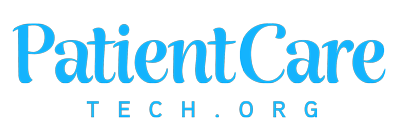How to Communicate Effectively with Nurses and Other Healthcare Team Members for Patient Care Technicians
Effective communication is essential in any workplace, but in healthcare, it’s a lifeline. For Patient Care Technicians (PCTs), the ability to communicate clearly and professionally with nurses, doctors, and other team members directly impacts patient outcomes and the overall efficiency of care. Here’s a guide to help PCTs master the art of communication within a healthcare team.
Understand the Roles and Responsibilities of Team Members
Before engaging with your colleagues, it’s important to understand their roles and responsibilities. Nurses, for example, are responsible for developing patient care plans and administering treatments, while PCTs focus on daily patient care and assistance. Knowing how your role supports others can help you communicate more effectively and ensure you provide relevant and actionable information.
Tip: Ask questions and clarify expectations during team meetings or shadow team members to better understand their workflow.
Practice Active Listening
Listening is just as important as speaking. Pay close attention to verbal instructions, non-verbal cues, and written documentation. Active listening not only ensures that you understand the message but also demonstrates respect for the person speaking.
How to Practice Active Listening:
- Maintain eye contact when someone is speaking to you.
- Avoid interrupting, even if you think you know what they’ll say next.
- Repeat or summarize instructions to confirm your understanding.
Use Clear and Concise Language
In a busy healthcare setting, time is of the essence. Avoid using vague terms or unnecessary details. Instead, focus on delivering clear, concise messages.
For Example:
- Instead of saying, “The patient seems off,” say, “The patient in Room 204 has an elevated temperature of 101.4°F and appears short of breath.”
Being specific ensures that nurses and other team members can respond quickly and appropriately.
Adapt to Different Communication Styles
Every healthcare professional has their own preferred communication style. Some may prefer detailed explanations, while others value quick updates. Observe how your colleagues communicate and adapt your style to match theirs.
Pro Tip: When in doubt, ask how they prefer to receive information. For instance, some nurses may prefer verbal updates during rounds, while others might appreciate written notes.
Use Technology to Enhance Communication
Healthcare relies heavily on technology for communication, from electronic health records (EHRs) to team messaging apps. Familiarize yourself with the tools your facility uses and ensure you’re using them correctly and efficiently.
Quick Tips for Using EHRs and Communication Tools:
- Double-check that you’re entering patient data in the correct charts.
- Use professional language in team messaging platforms.
- Notify nurses immediately if you notice urgent information in the EHR.
Show Respect and Empathy
Healthcare can be stressful, and tensions can sometimes run high. Maintaining respect and empathy in your interactions fosters a positive work environment and strengthens team collaboration.
What This Looks Like in Practice:
- Use polite language, such as “please” and “thank you.”
- Acknowledge the workload of your colleagues, and offer assistance when possible.
- Avoid blaming or finger-pointing; instead, focus on solutions.
Speak Up When Necessary
PCTs are often the first to notice changes in a patient’s condition. If you observe something concerning, don’t hesitate to speak up. Effective communication isn’t just about delivering messages—it’s about delivering the right messages at the right time.
Key Steps for Speaking Up:
- Use SBAR (Situation, Background, Assessment, Recommendation) for structured communication.
- Prioritize patient safety over the fear of bothering someone.
- Remain calm and professional, even in urgent situations.
Seek Feedback and Reflect
Improving communication is an ongoing process. Regularly ask nurses and other team members for feedback on how you can improve your interactions. Reflect on your communication after challenging situations to identify areas for growth.
Questions to Ask for Feedback:
- “Was the information I provided clear and helpful?”
- “Is there anything I can do differently to make your job easier?”
As a Patient Care Technician, you are a vital link in the healthcare chain. By mastering effective communication with nurses and other healthcare professionals, you can help create a seamless flow of care, improve patient outcomes, and foster a supportive work environment.
Remember: clear, respectful, and timely communication is the cornerstone of successful teamwork in healthcare.



